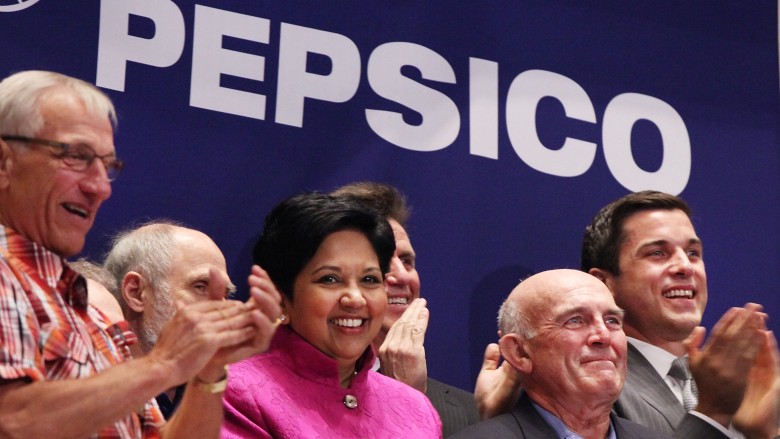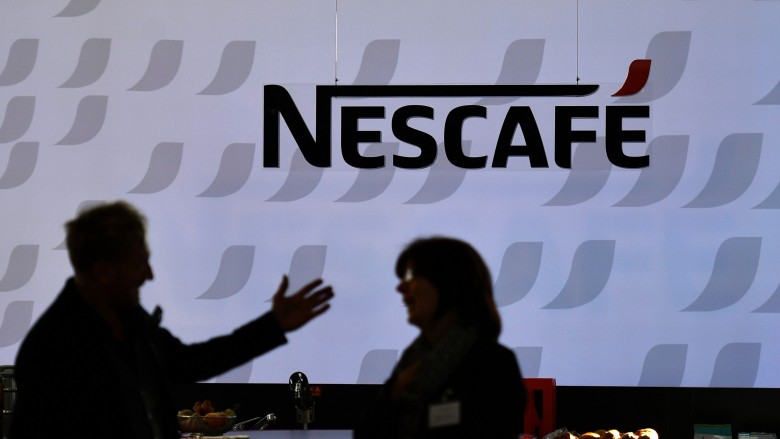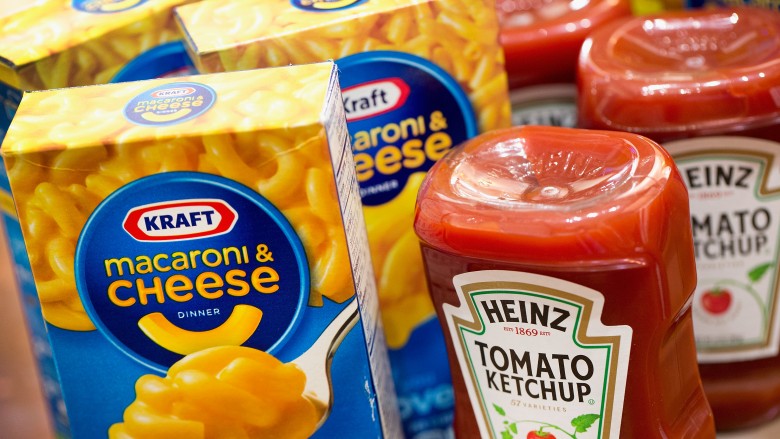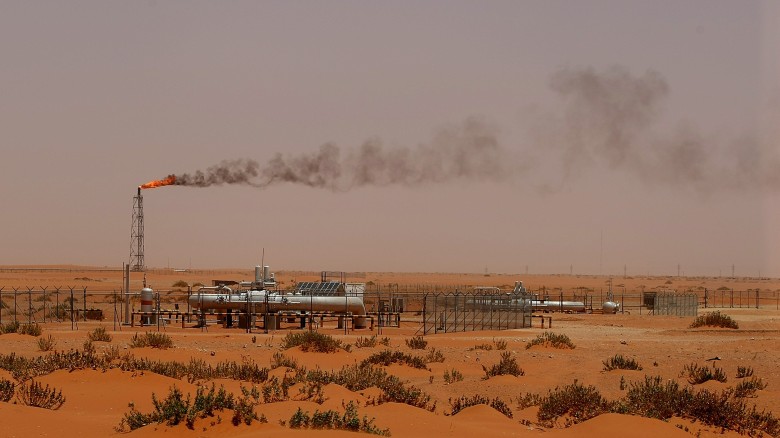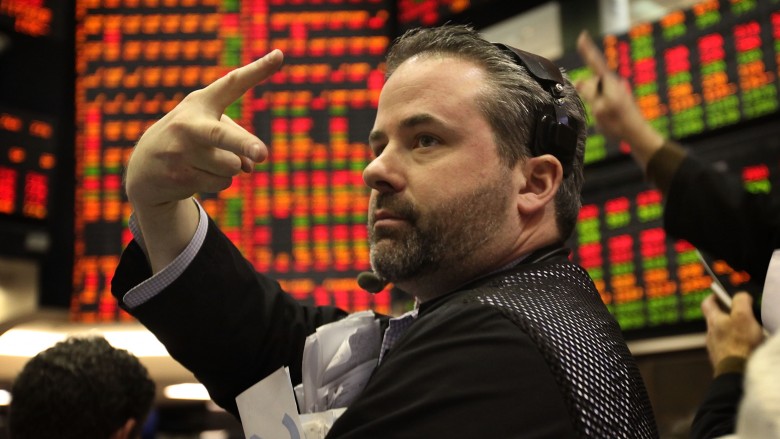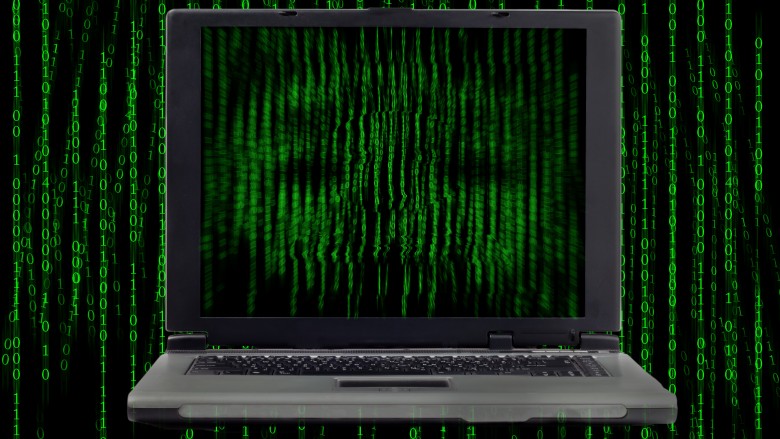Companies You Didn't Realize Run The World
Oh, how great it is to live in the 21st century, where we don't need to hunt for our food or provide our own fuel for heat and survival. It's much easier to have companies do all of the dirty work for us. With modern living, of course, comes massive corporations and businesses, and—conspiracy theories aside—some companies run the world. From the food we put into our bodies to the organizations that control the colored paper we call money, somebody dictates how our everyday life works, and you may not know who exactly is in charge.
Comcast
If you are reading this in the United States, you probably already have some sort of opinion on Comcast. There's also a good chance you use Comcast services in your home. You may not realize, however, just how powerful the media giant really is.
For those who don't know, Comcast Corporation is an American global telecommunications giant, which holds claim to the world's largest broadcasting and cable television company—which means they're the best at providing you with 90 channels of nothing to watch. Comcast also defines the term conglomerate, as they own Rockefeller Plaza's staple company NBCUniversal and therefore operate NBC, Telemundo, MSNBC, CNBC, USA Network, NBCSN, E!, The Weather Channel, The Golf Channel, MLB Network, NHL Network, and a variety of other channels. Comcast also owns one of Hollywood's "Big 6" film studios, in Universal Studios, in addition to "Illumination Entertainment, art house film-centered Focus Features, Working Title Films, Universal Animation Studios, Universal Interactive, Universal Pictures International, and Universal Studios Home Entertainment." They also recently purchased Shrek creators DreamWorks Animation studio for roughly $3.8 billion. Furthermore, Comcast owns XFINITY and popular movie ticket service Fandango, while also owning professional hockey bad boys the Philadelphia Flyers, as well as their home ice, the Wells Fargo Center. On top of all that, Comcast also—as owners of NBCUniversal—operates its four parks: Universal Studios Hollywood in Los Angeles. Universal Orlando Resort in Orlando, Florida. Universal Studios Japan in Osaka, and Universal Studios Singapore in Singapore.
According to NASDAQ, "Comcast has an impressive market value of $147.8 billion thanks to $68.8 billion in sales, $8.4 billion in profits, and almost $160 billion in assets" and boasts an impressive number of high-speed Internet customers, at over 22 million.
We told you Comcast owns everything, and we barely even scratched the surface.
PepsiCo
Located in Purchase, New York, PepsiCo, Inc. owns pretty much every grain-based snack food you eat or beverage you drink. Seriously, if you walk through a supermarket in the United States, pretty much every snack you see is owned by this one company, though it's known mostly just as Coca Cola's rival in the soft-drink space.
PepsiCo makes—most notably—Lay's, Gatorade, Tropicana, Doritos, Quaker, Cheetos, Mirinda, Lipton, Ruffles, Tostitos, Aquafina, Fritos, Walkers, and Starbucks' ready-to-drink beverages, in addition to their line-up of soft-drinks, featuring Pepsi, Mountain Dew, 7UP, and others. And those are just the most popular among the plethora of brands they own. Unlike their most famous rival, Coca Cola—who have largely remained cemented in the beverage market—PepsiCo's investment into expanding well past the boundaries of the drink space has certainly paid off, as the company makes more profit from its food brands than its famous drinks. The snack food giant is raking in money hand over fist, with 22 of its brands now pulling in $1 billion in annual retail sales each. This all makes PepsiCo the world's second-largest food and beverage business, based purely in terms of net revenue.
Who knew people ate so much junk food? *Reaches for bag of chips.*
Nestlé
Take a guess at how many brands Swiss transnational food company Nestlé owns. Just take a stab at it. 500? 1,000? 2,000?!
In total, Nestlé owns over 8,500 food brands in more than 80 countries, making the Swiss company the largest food company in the world. Though you probably haven't heard of every brand Nestlé owns, such as the Peruvian confectionary brand D'Onofrio or the Portuguese coffee brand Buondi, you've certainly heard of many—whether you knew they were a Nestlé product or not—such as Carnation, Juicy Juice, Ovaltine, Libby's, or Sweet Leaf Tea, in addition to the seemingly endless list of products with the prefix "Nes" in their names: Nesquik, Nestea, Nespresso, etc. Where Nestlé really has a monopoly, however, is on the very essence of life, itself—water. Nestlé owns bottled-water companies all over the world, from American favorites Poland Spring and Deer Park to Italy's Perrier to Hungary's Theodora. If you go to any country in the world and buy a bottle of water, there's a good chance it's Nestlé's water.
Last year, Forbes reported that Nestlé raked in an astonishing $92 billion in revenue, with $9.4 billion in profit—firmly cementing the "chocolate company" as the world's most dominant food supplier.
They say you are what you eat. By that logic, you are predominantly Nestlé.
Kraft Heinz
Formerly two separate companies, Kraft and Heinz joined forces in 2015 to create one super conglomerate of foodstuffs worth about $46 billion. Luckily for Steelers fans, the merger didn't affect naming rights for the American football team's home turf.
Kraft Heinz owns a whole bunch of stuff you probably eat and drink on a fairly regular basis—assuming you live in the United States, of course—including Oscar Mayer, Velveeta, Capri Sun, Kool-Aid, Jell-O, Philadelphia, Lunchables, Planters, Maxwell House, and Grey Poupon. And, of course, they own everyone's childhood favorite blue-box mac 'n' cheese. Outside the United States, their food dominance is less extensive, though they still have their saucy fingers in foreign markets' food stores. In February 2017, the company tried to complete the largest takeover of a British company in history, putting in a bid for Unilever worth £115 billion—or roughly $143 billion. Yes, that's billions we're talking about. However, it was to no avail, as Prime Minister Theresa May was about to have none of that.
Nestlé may reign supreme when it comes to what any humans put into their bodies, but the Kraft Heinz alliance looks to lay claim to more and more of what you digest.
Saudi Aramco
Oil companies rule the world. You've seen There Will Be Blood. Maybe you've even read Upton Sinclair's Oil! But did you know which oil company really rules?
Saudi Arabia's state-owned Saudi Aramco is the largest oil company, and the numbers behind the titanic supplier are almost unbelievable. Saudi Aramco is worth an estimated $2.5 trillion. Trillion! That price tag makes the company, according to CNN Money, four times more valuable than Apple, and more than five times more valuable than the West's largest oil producer, ExxonMobil. In the words of Bloomberg, "nothing in the world compares to [the] state-owned oil giant," as it's nearly impossible to put a value on the oil company. The unbelievable worth of the Saudi company stems from how, in terms of raw numbers, they produce more oil than any other company, at about 10.3 million barrels of oil per day—more than double their Russian rival, Rosneft, and more than four times ExxonMobil. According to CNN Money, they have 261 billion—billion!—barrels of oil in reserve, and the United States buys roughly one million barrels of oil off Saudi Aramco per day.
Saudi Aramco may make absurd amounts of money, but virtually all of it ends up in the hands of the Saudi Arabian state. They pay around 93 percent tax to a country that earns 87 percent of its budget revenue from oil. So, maybe your own tax bill isn't so bad after all.
CME Group
The Chicago Mercantile Exchange & Chicago Board of Trade, or CME Group for short, is an American financial market company that operates the largest options and futures exchange in the world. CME Group owns the Dow Jones stock and financial indexes and have their fingers on everything from agricultural commodities to rare and precious minerals to real estate, with much more in between. Yet most people have no idea that CME Group is one of the world's most dominant companies.
Brendan Coffey once noted, in Forbes, that CME Group is one of the four companies that—more or less—owns everything, and indeed Forbes ranks them among The World's Biggest Public Companies. Notes The Economist, "Tourists continue to line up outside the historic building of the New York Stock Exchange on Wall Street, hoping to see the inner workings of capitalism—even as the NYSE is becoming increasingly irrelevant," yet these tourists probably have no idea that CME Group is worth more than the NYSE. Indeed, CME operates well out of the spotlight and seems to prefer to keep it that way. CME's chief executive officer, Terry Duffy, admits to being friends with a lot of interesting people, including Mark Wahlberg and Hillary Clinton, in addition to former US presidents and Washington politicians—claiming it's probably his "no-nonsense," no "bulls**t" attitude these important people find attractive. Of course, it could also be his profit margin.
ICBC
Can you guess which bank is, all things considered, the most powerful in the world? Take a minute. If you guessed the Industrial and Commercial Bank of China (ICBC), you deserve a gold star for your economic knowledge.
When it comes to global banking, nobody does it better than China. (Sorry, US.) And when it comes to Chinese banks, nobody has more clout than ICBC. According to the South China Morning Post in early February 2017, "The Industrial and Commercial Bank of China has for the first time surpassed Wells Fargo to become the world's most valuable banking brand, helping China itself become the No 1 country in terms of aggregate banking industry brand valuation." The Chinese bank has indeed experienced explosive growth, with ICBC's brand value growing 32 percent year-on-year, currently valued at nearly $48 billion—helping assert China's claim as the world's top banking country. ICBC, alone, holds roughly $2.95 trillion in assets, with 108 branches worldwide.
Clearly, nobody can hit the club, pop bottles and make it rain like ICBC.
The Internet Architecture Board
The Internet may represent a bastion of freedom and information, but such a valuable invention is carefully monitored, designed, and controlled. One company that serves to control the Internet is the Internet Architecture Board, a committee of the Internet Engineering Task Force—both of which sound pleasant to anyone who loves a free and open Internet, surely.
According to the Internet Architecture Board's official website, "its responsibilities include architectural oversight of IETF activities, Internet Standards Process oversight and appeal, and the appointment of the RFC Editor. The IAB is also responsible for the management of the IETF protocol parameter registries"—and we'd be lying if we said we understood what any of that really means. Indeed, the history of the Internet Architecture Board—as well as any of the other behind-the-scenes organization that govern the Internet, in some way—is enough to make anyone's head spin. However, perhaps the most interesting aspect of the IAB is that, in 1989, it was "supported by an inter-agency committee of the US government, the FRICC, later to become the FNC (Federal Networking Committee)." In fact, the IAB has been tied to the US Federal Government's Defense Advanced Research Projects Agency (DARPA) since the Internet's formative years, though the company is now public and international.
The Internet Architecture Board claims it aims to "ensure that the Internet is a trusted medium of communication that provides a solid technical foundation for privacy and security, especially in light of pervasive surveillance." Fingers crossed that's true.


